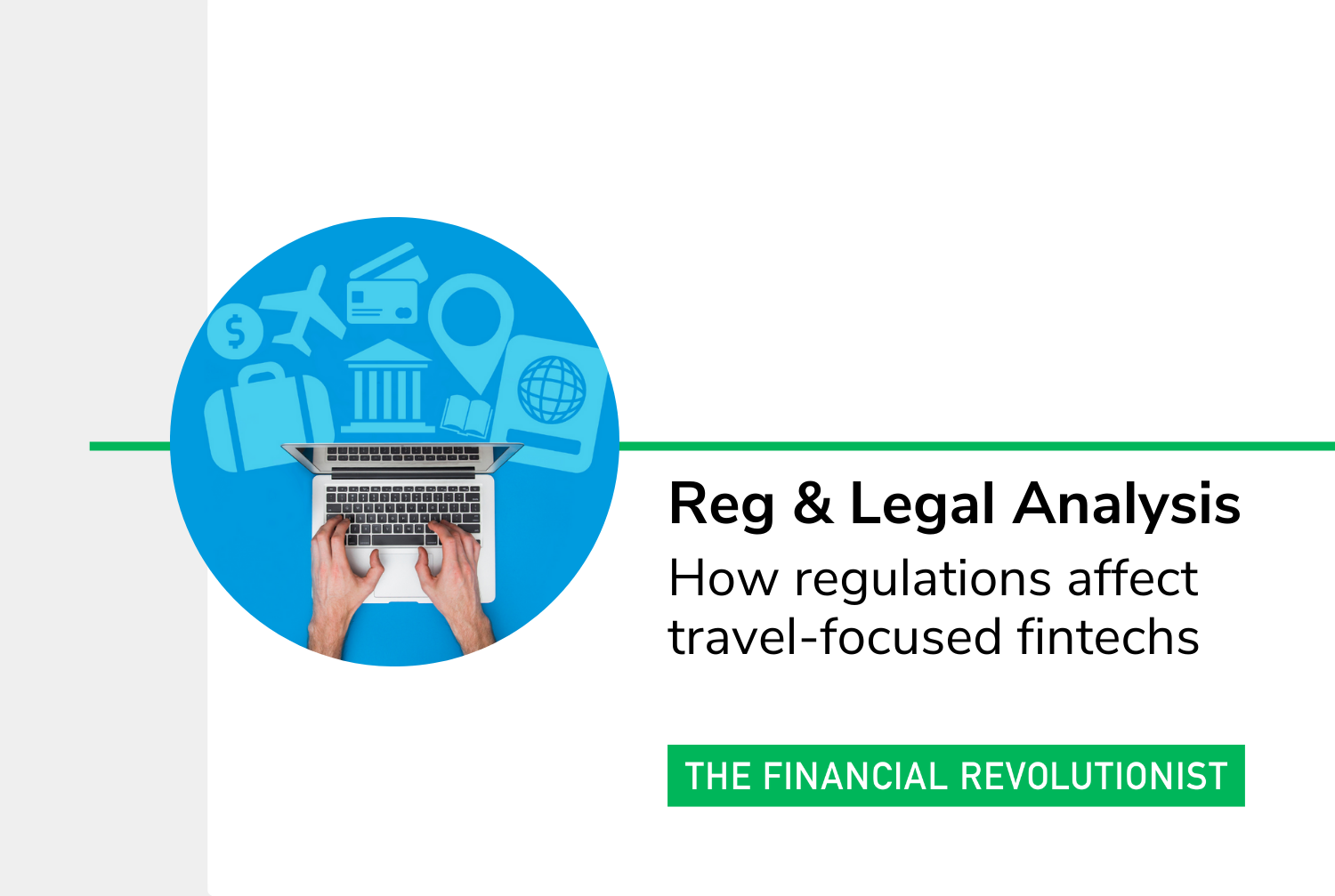How regulations affect travel-focused fintechs
/Finance and travel are two highly regulated sectors. Compliance teams at startups have to deal with an expansive confluence of variables—KYC, passports, AML, travel restrictions—wherever these two industries meet. But business teams also have to deal with the ways that shifting regulations can dramatically affect consumer and business demand:
Travel restrictions
Public-health responses to the onset of the Covid-19 pandemic are the most glaring example of that two-pronged reality. With stay-at-home orders, and closed borders, workers and tourists chose—or had no choice but—to stay in place.
Spring 2020 saw demand for travel crash to virtually zero, with some fintechs seeing negative revenues due to a deluge of refunds. Travel fintechs are now seeing a resurgence in travel and traction from both companies and consumers, and are building out new products to account for this surge in demand.
Interest rates
But some of these products, such as travel-focused BNPL, can see their success or costs sway significantly due to macroeconomic policies. As interest rates rise, for example, and unemployment rates potentially increase, we should expect default rates on BNPL and other lending products to increase.
And, of course, interest rates affect the cost of capital for fintechs themselves. Travel-focused fintechs, like others, are in the process of prioritizing unit economics over growth, which may make for leaner teams as well as less ambitious strategies for scaling under current economic conditions.
Sanctions
Finally, an ever-expanding list of sanctioned individuals and geographies can cause a headache for compliance teams. Ensuring that their financial flows are OFAC-compliant involves paying attention to uniquely dynamic regulatory requirements—understanding what counts as Ukrainian territory, for instance—and jettisoning support for corporations or airlines under Western sanctions.
Those concerns are unlikely to go away anytime soon. We may expect fintechs based outside sanctions-imposing regions to attempt to fill in the gap or power vacuum, creating financial products and services targeting tourists and business travelers from sanctioned states like Russia—using, for instance, the country’s Mir card network.









